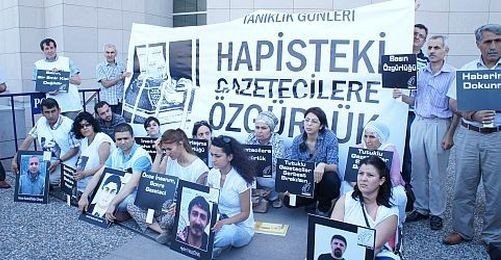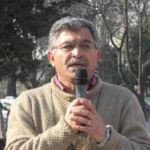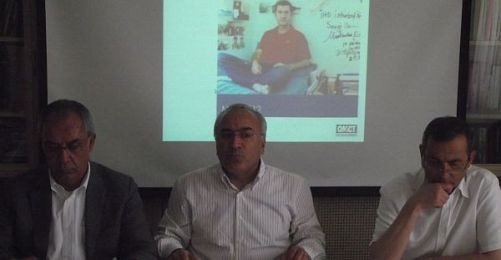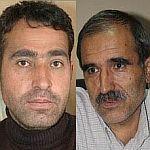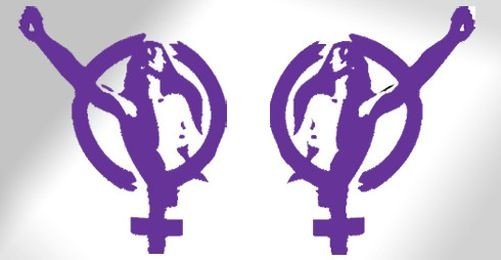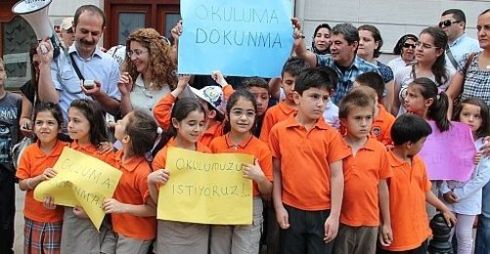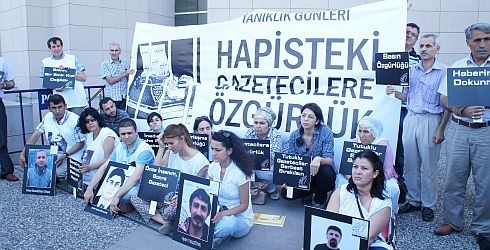
Journalists who gathered before the Istanbul courthouse on the 12th day of the "Witness Days" attested once more for their colleagues Aydın Yıldız from the Dicle news agency (DİHA,) Davut Uçar from the Etik Agency, Dilşah Ercan from the Kurdish Azadiya Welat, Kenan Karavil from Radio Dünya and Erdal Süsem from Eylül magazine.
"We testify before the courthouse that our friends are journalists," Celal Başlangıç said as he commenced his speech.
"We hereby testify to the perpetuation of the Sept. 12 [1980 coup de tat] mindset. Davut [Uçar's] spouse is also under arrest, and these unlawful arrests have broken their home apart. They no longer have a house," Sedat Yılmaz, an editor from the Özgür Gündem said on behalf of imprisoned journalist Davut Uçar.
Dilşah Ercan's co-worker Türkan Ökmen also delivered her speech in Kurdish:
"The state views every dissident as an enemy. As such, it views journalists who reflect the truth as enemies, too. I testify, however, that my friend is a journalist.
"My friend was at no fault. He was arrested because he aired a program in Kurdish and gave voice to problems at prisons. [Authorities] associated the investigation with the PKK (Kurdistan Workers' Party,)" said Ali Kalik while speaking on behalf of Kenan Karavil.
The GÖP's term spokesman and the head of the Turkish Journalists Union Ercan İpekçi also read the letter penned by Erdal Süsem from the Edirne F-Type Prison in northwestern Turkey.
"They are trying to convict our friends with unfair accusations by turning a blind eye to the fact that laws and criminal definitions depict journalistic activities as acts of terrorism," he said.
Eylem Süsem also testified for her spouse Erdal Süsem and spoke of the trying conditions and inhumane treatment at prison.
"You can conceal Erol Zavar, Erdal Süsem and Mehmet Yeşiltepe's cases in some fashion. You may not see them as members of the press, but how are you going to be able to disregard or manipulate the [cases] of our remaining arrested and convicted colleagues?" she asked.
The journalists, their co-workers and their families will continue to meet at 12:00 on every weekday for their arrested colleagues on the "Witness Days."
The journalists behind bars and their "crimes"
Aydın Yıldız (DİHA):
DİHA reporter Aydın Yıldız was born in the district of Cizre in the southeastern province of Şırnak in 1982. Yıldız had been working as a reporter for two years while studying at the Department of Sociology through open learning. Authorities took him under custody in the southern province of Mersin upon a directive issued by the Gaziantep Prosecutor's Office in southeastern Turkey on Oct. 1, 2011. Yıldız is still serving time behind bars in the Gaziantep H-Type Prison.
"The questions the prosecutor asked me were so ridiculous, I could not contain myself and broke into laughter. He first asked me why I threw a stone, then why I chanted a slogan, and then why I wore a 'pushi' (a traditional garment.) In fact, I did not know what to say. I said I was a journalist and asked why I would do such a thing. Since you claim I did it, then show me a photograph, I told him, but to no avail. The upper echelons had already made their decision," Yıldız wrote for the Arrested Journal, a publication issued by journalists in prison.
"[They] claim I am a member of an armed organization. My camera and my video camera are my greatest weapons, and if they regard them as criminal, then let them do it," he also wrote.
Davut Uçar (Etik Agency):
Davut Uçar was born in Gaziantep in 1971. A graduate of Istanbul University's Department of Economics, Uçar started his career in journalism at the Gazintep office of the Özgür Gündem newspaper in 1993. When authorities shut the paper down, he then became a representative for the Özgür Yaşam magazine, then for the Demokrasi newspaper in the Çukurova district of the southern province of Adana. When Özgür Gündem recommenced its publication, he then became a representative for the paper's offices in the southeastern province of Diyarbakır. When officials shut the paper down again in 2004, he served as an administrator and a marketing specialist in newspapers of similar political leanings. He had also been working as an administrator in an advertisement agency since 2000. Uçar was arrested on Dec. 24, 2011 within the scope of the Kurdistan Communities Union (KCK) probe on the charge of "being a administrator for a terrorist organization." Among the "evidence" cited against him in the indictment is his "relation to the publication and distribution of Özgür Gündem, a phone call he had made to deputy Sebahat Tuncel of the Peace and Democracy Party (BDP,) a word document entitled 'Which journalist is in prison for which reason' found during a house search and a calendar design for the BDP's Suruç District Presidency in the southeastern province of Şanlıurfa."
Dilşah Ercan (Azadiya Welat):
Dilşah Ercan was born in the southern province of Mersin in 1988. A high school graduate, she started her career in the press in 2010 as a distributor for the Günlük and the Azadiya Welat, where she later began working as a reporter. She was taken under custody on Sept. 23, 2010 and arrested three days later on Sept. 26, 2010. She stands accused of directing and organizing certain legal and outlawed demonstrations staged by the BDP and the Human Rights Association (IHD.) Officials presented the photos she took and the footages she shot in connection with the events she was following as a journalist as "evidence" against her. Her work is regarded as illegal despite the fact that she was also working with other journalists.
"I am standing trial in the case all by myself, and it is [apparent] that the accusations in the file have been distorted and pinned on me in a groundless manner," she said.
She followed in particular the IHD's work as a reporter, and a press release entitled "Human Rights Violation" on June 17, 2010 before the Mersin Prison. She wrote stories about the situation of prisoners who had fallen ill and rights violations at prisons. The court sentenced her to eight years and eight months behind bars during a hearing on June 9, 2011 in the suit in which she stands accused. The court also disregarded her reporter card from Azadiya Welat. The file is currently waiting in the Supreme Court of Appeals, while Ercan continues to reside in the Adana Karataş Women's Prison in southern Turkey.
Kenan Karavil (Radio Dünya):
Kenan Karavil was born in the district of Kızıltepe in the southeastern province of Mardin in 1980. He started his career in journalism in Azadiya Welat in Adana. He then served as its representative in Mersin. Authorities detained him at the start of the year 2000 and later sentenced him to 15 years in prison in 2001. He was released in 2005 thanks to an amendment to the Turkish Penal Code (TCK.) Karavil then began to work at a local radio station called Radio Dünya in Adana. He served as its chief editor until his arrest on Dec. 11, 2009. The prosecutor's office directed a number of questions at him, such as who owned the radio, what he was doing there, why his program was named as such and why he was reading prison letters at the radio.
"I started journalist because I am fond of it. Every occupation surely has its difficulties, but the beauties of journalism outweigh its hardships," he wrote in a letter while waiting in prison for 10 months for the indictment to come through.
Karavil, who continues to reside in the Adana Kürkçüler F-Type Prison, is still waiting for a response from the Supreme Court of Appeals regarding the guilty verdicts he received on four separate charges, three of them on "making propaganda for a terrorist organization."
Erdal Süsem (Eylül magazine):
Erdal Süsem was arrested on baseless charges in 2000 which the Supreme Court of Appeals later overturned. Authorities then released him in 2007. He then served as an editor and a distributor for the Eylül Art and Literature magazine which featured letters and writings sent from prison. Officials arrested Süsem again on Feb. 1, 2010 for his writings in the magazine on the charge of "membership in a terrorist organization." They cited as evidence "the cards and letters sent from behind bars after prison officials reviewed them, socialist publications and the interviews he held on behalf of Eylül magazine. He is still residing at the Edirne F-Type Prison in northwestern Turkey.





